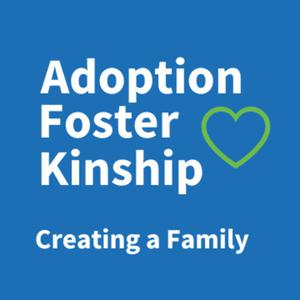
Creating a Family: Talk about Adoption & Foster Care
Creating a Family
Are you thinking about adopting or fostering a child? Confused about all the options and wondering where to begin? Or are you an adoptive or foster parent trying to be the best parent possible to your precious child? This is the podcast for you! Every week we interview leading experts for an hour talking about the topics you really care about in deciding whether to adopt/foster or how to be a better parent. This podcast is produced by www.CreatingaFamily.org. We are the national non-profit with the mission to strengthen and inspire adoptive, foster & kinship parents and the professionals who support them. Creating a Family brings you the following trauma-informed, expert-based content: weekly podcasts, weekly articles/blog posts, resource pages on all aspects of family building at our website CreatingAFamily.org. We also has an active presence on many social media platforms. Please like or follow us on Facebook, LinkedIn, Pinterest, Instagram and Twitter.
- 44 minutes 51 secondsWhat Foster Care Alumni Want You to Know
Click here to send us a topic idea or question for Weekend Wisdom.
Join our panel of four former foster youth to learn what they wished foster parents and others knew about being in foster care.
In this episode, we discuss:- Tell us the story of your involvement with foster care and the child welfare system.
- What was something that your foster parent(s) did that helped you cope?
- What did your foster parents do that made things harder for you?
- What are some of the myths that you hear about kids in foster care?
- If listeners are considering becoming foster parents, what should they consider to help them decide if they are the right fit to be foster parents?
Resources:
- The Faces of Foster Care Volume 1, 2, and 3
Resources - Dave Armstrong
- Why Me My Fight For Life (Book)
- From Gangs To Greece (Book)
- www.SenseiDave.com (Speaking page)
- www.upna.net (Coaching/Mentoring)
Please leave us a rating or review. This podcast is produced by www.CreatingaFamily.org. We are a national non-profit with the mission to strengthen and inspire adoptive, foster & kinship parents and the professionals who support them.
Creating a Family brings you the following trauma-informed, expert-based content:- Weekly podcasts
- Weekly articles/blog posts
- Resource pages on all aspects of family building
22 January 2025, 7:00 am - 3 minutes 58 secondsHow to Balance Giving Kids Structure and Control
Click here to send us a topic idea or question for Weekend Wisdom.
Question: First, I wanted to thank you for your incredible podcast. I’m not a parent (I only recently graduated from college), but I have volunteered in group homes for foster care children for the past couple of years. Your podcast has not only helped me to work more effectively with the kids I see but has also given me insight into what I want to do in my career. I hope to research and work with families involved with the foster care system in the future, and your podcast has allowed me to learn from so many interesting and diverse perspectives. My question is: how do you balance giving children who have experienced trauma both a sense of control and structure? From the kids I’ve worked with, I’ve noticed that many of them tend to act out the most when they feel like they don’t have control. This makes sense to me, as I imagine almost all kids in foster care have had a severe lack of control in their lives. However, I’ve also heard that kids who have experienced trauma benefit from having a strict structure in their lives. These two ideas seem somewhat antithetical to each other, but both seem important. How do you recommend parents and practitioners give children both a sense of control over their lives and provide them with structure so they have a sense of safety? Thank you again for your wonderful podcast, it truly has made such a difference in how I think about the foster care system. I look forward to listening to your podcast every week.
Resources:- Free E-Guide: Parenting a Child Exposed to Trauma
- Helping a Child Heal from Trauma
- Parenting Kids with Challenging Behavior
- Raising Foster Children
Please leave us a rating or review. This podcast is produced by www.CreatingaFamily.org. We are a national non-profit with the mission to strengthen and inspire adoptive, foster & kinship parents and the professionals who support them.
Creating a Family brings you the following trauma-informed, expert-based content:- Weekly podcasts
- Weekly articles/blog posts
- Resource pages on all aspects of family building
18 January 2025, 7:00 am - 50 minutes 8 secondsAdoption Tax Credit 2024
Click here to send us a topic idea or question for Weekend Wisdom.
If you are adopting or have adopted within the last several years you should join our conversation today about claiming the Adoption Tax Credit for 2024. Our guests will be Becky Wilmoth, an Enrolled Agent and Adoption Tax Credit Specialist with Bill’s Tax Service; and Josh Kroll, the Adoption Subsidy Resource Center coordinator at Families Rising.
In this episode, we cover:- What is the Adoption Tax Credit for adoption being claimed on 2024 federal taxes?
- What is a “credit,” and how does it differ from a deduction or tax savings?
- How would you use the Adoption Tax Credit if you get a tax refund every year?
- Should you still apply the credit to your federal income taxes if you don't have any federal tax liability?
- What types of adoptions are included or excluded?
- Are kinship adoptions covered? Are kinship guardianship arrangements covered? What if the child never was involved with the foster care system?
- Can you get credit for each adoption you complete even if completed in the same year? What about adopting siblings at the same time?
- What is a Qualified Adoption Expense for purposes of the Adoption Tax Credit 2024?
- When can you claim the Adoption Tax Credit?
- Special Needs Adoption:
- How does the Adoption Tax Credit differ for adoptions from foster care? What does the IRS accept as proof of “special needs”?
- What is a $0 subsidy agreement?
- Special needs child for international adoption
- Can you reclaim your expenses for an attempted adoption that did not result in a placement (failed adoption)? How?
- What income level (Modified Adjusted Gross Income) is excluded?
- How long can the credit be carried over?
- What if you didn’t claim the Adoption Tax Credit when eligible? Is the Adoption Tax Credit something you can amend your tax return for, and if so, how do you amend it, and how many years back?
- Will the Adoption Tax Credit offset self-employment tax?
- How does the Secure Act impact claiming the Adoption Tax Credit for 2024 taxes?
- What should you do if the child’s Social Security Number is unavailable when you file? Should you use an Adoption Taxpayer Identification Number (ATIN #) if you don’t have the child’s social security number?
- How does the Adoption Tax Credit work in conjunction with employee adoption benefits? For special needs adoption?
- If you adopt, can you still get the Child Tax Credit?
- What do you need to get the Child Tax Credit for your adopted child?
- Do you need to send any documentation to the IRS when you file your taxes? What type of documentation should you keep in your records?
- How do you find a tax specialist knowledgeable about Adoption Tax Credit?
- The Adoption Tax Credit used to be a refundable credit. Do you think the new administration will impact the refundability legislation?
- Advocate for refundability
Please leave us a rating or review. This podcast is produced by www.CreatingaFamily.org. We are a national non-profit with the mission to strengthen and inspire adoptive, foster & kinship parents and the professionals who support them.
Creating a Family brings you the following trauma-informed, expert-based content:- Weekly podcasts
- Weekly articles/blog posts
- Resource pages on all aspects of family building
15 January 2025, 7:00 am - 5 minutes 41 secondsShould We Adopt Again? - Weekend Wisdom
Click here to send us a topic idea or question for Weekend Wisdom.
Question: My husband and I adopted our now seven-year-old son from South Africa two years ago. He is the best. We cannot believe how lucky we are to have this joyful little boy in our family, and we owe much of our success to what we've learned from your show and resources, so thank you. Although our son feels pretty easy compared to some of the challenges we hear about, he still requires a lot. A lot of time, patience, energy, school appointments, doctor's appointments, therapy appointments, etc. In any case, we are now considering whether to embark on a second adoption of an older child three to six years old from South Africa. While I see a lot of resources for preparing siblings and managing birth order disruptions, which is not the case for us, we are wondering what parents of adopted kids should consider when deciding whether to adopt another child. For example, is it better for our son to have all of the resources, meaning time, patience, energy, et cetera, and stability we can provide an only child given his needs and the fact that he was adopted later? Should we expect more of the same with a second child or are there different challenges to raising new siblings who both have trauma? What should we be aware of or thinking about when making this decision?
Resources:Please leave us a rating or review. This podcast is produced by www.CreatingaFamily.org. We are a national non-profit with the mission to strengthen and inspire adoptive, foster & kinship parents and the professionals who support them.
Creating a Family brings you the following trauma-informed, expert-based content:- Weekly podcasts
- Weekly articles/blog posts
- Resource pages on all aspects of family building
11 January 2025, 7:00 am - 51 minutes 3 secondsHow to Adopt in 2025
Click here to send us a topic idea or question for Weekend Wisdom.
Are you considering adopting a child this year? We've got answers to all (or most) of your questions. Join our discussion with Teresa Bernu, the Executive Director at Adoption Center of Illinois. She is a Licensed Clinical Social Worker and has worked extensively in the areas of domestic infant adoption, foster care, and guardianship. We will also talk with Steve Valdez, the Chief Operating Officer at Hand in Hand International Adoptions. He holds a Master of Divinity and an M.A. in Psychology. He’s an adopted dad of 5 kids through foster care adoption.
In this episode, we discuss:
Domestic infant private adoption in the US- What is the process?
- What are the reasons that pregnant moms are placing their children for adoption?
- Matching-Expectant parent choice
- The Interstate Compact on the Placement of Children (ICPC)
- Open adoption
- Special needs of children available
- How long does it take? What factors influence this time?
- How much does it cost? What factors influence this cost?
- How do failed matches when an expectant mom decides to parent rather than go through with an adoption plan impact the cost of domestic adoption?
- Adoption agency and adoption attorney
- What is the first step prospective adoptive parents should take if they are interested in adopting a baby?
Adoptions from foster care in the US
- What is the process?
- Adopting your foster child
- Adopting a waiting child
- What are the reasons that children come into foster care in the US?
- What age and race of child is available for adoption from foster care?
- Special needs? Trauma, prenatal substance exposure
- How long does it take?
- How much does it cost?
- What is the first step prospective adoptive parents should take if they are interested in adopting from foster care?
International adoptions to the US
- What is the process?
- What types of special needs do children available for adoption from abroad have?
- How long does it take? What factors influence this time?
- How much does it cost? What factors influence this cost?
- What is the first step prospective adoptive parents should take if they are interested in adopting internationally?
Additional resources:
Please leave us a rating or review. This podcast is produced by www.CreatingaFamily.org. We are a national non-profit with the mission to strengthen and inspire adoptive, foster & kinship parents and the professionals who support them.
Creating a Family brings you the following trauma-informed, expert-based content:- Weekly podcasts
- Weekly articles/blog posts
- Resource pages on all aspects of family building
8 January 2025, 7:00 am - 4 minutes 35 secondsShould I Foster a Younger Child or Teen First? - Weekend Wisdom
Click here to send us a topic idea or question for Weekend Wisdom.
Question: My husband and I are licensed to foster/adopt, but there have been no placements yet. We initially thought our age preference was 2-6 year olds, but as we have gotten more information/education we think we may be a good home for teenagers. We have no children (adopted/fostered/biological) between us but this also means we have no one else in the home at this time. We are still interested in fostering (and adopting should the opportunity arise) younger children as well at some point. My question is would it be "better" for us to start with teens and move to younger children after the teens have left our home (for college, work, general adulthood independence) or would we be better prepared for teens after having younger children first?
Resources:Please leave us a rating or review. This podcast is produced by www.CreatingaFamily.org. We are a national non-profit with the mission to strengthen and inspire adoptive, foster & kinship parents and the professionals who support them.
Creating a Family brings you the following trauma-informed, expert-based content:- Weekly podcasts
- Weekly articles/blog posts
- Resource pages on all aspects of family building
4 January 2025, 7:00 am - 44 minutes 53 secondsAn Adoptee's Search for Identity, Family, and Belonging
Click here to send us a topic idea or question for Weekend Wisdom.
Join our discussion with an adult adoptee about her search for her birth family and her identity. We will talk with Julie Ryan McGue, a domestic adoptee and an identical twin. She is the author of Twice a Daughter, which explores her coming to terms with her adoption and her search for her birth parents, and Twice the Family, which explores more of her relationship with her adoptive family.
In this episode, we cover:- Tell us your adoption story.
- What role did adoption play, if any, in your childhood?
- Feelings of needing to be perfect.
- Fantasizing about birth family.
- When did you begin to search for your birth parents?
- Was searching for your birth family something you knew you would do from a young age?
- After considerable effort, you located your birth mother. At first, she said she did not want contact. How did that leave you feeling?
- After you had phone calls and met, you didn’t want to tell her much about your adoptive parents.
- How did your mom (your adoptive mom) react to your search and when you found your birth mother?
- How do you wish she had reacted?
- What happened with your search for your birth father?
- Did you feel the same sense of shame, embarrassment, and rejection?
- Your birth mom’s reticence to help you find your birth father and your continued search caused a rift in your relationship. How is the relationship now?
- The tension between the birth parents’ right to privacy vs. the adoptee’s right to know.
- Your experience with online adoptee forums.
- The primal wound.
- Importance of adoptee support groups.
Please leave us a rating or review. This podcast is produced by www.CreatingaFamily.org. We are a national non-profit with the mission to strengthen and inspire adoptive, foster & kinship parents and the professionals who support them.
Creating a Family brings you the following trauma-informed, expert-based content:- Weekly podcasts
- Weekly articles/blog posts
- Resource pages on all aspects of family building
1 January 2025, 7:00 am - 5 minutes 54 secondsMy Parents Disapprove of Open Adoption - Weekend Wisdom
Click here to send us a topic idea or question for Weekend Wisdom.
Question: How do you speak to family members about open adoption? My entire family supports my intention to adopt as a single parent and has been very excited and generous as I have been working towards becoming a parent. My siblings were both adopted and there is a history of adoption in my family, mostly closed adoptions like my brother and sister. I would say my parents were ahead of their time in how they spoke openly about adoption and really worked hard to make us all feel loved and special. They shared with my siblings as much information about their birth parents as they had and supported my sister even to seek out a connection with her birth mother. However, despite all of this my parents seem to question open adoption. Do you have any tips for educating parents and family members about open adoption?
Resources:- Adoptee Voices (Resource page)
- Interview with Pioneer Researchers in Open Adoption (Podcast)
- Open Adoption (Resource page)
Please leave us a rating or review. This podcast is produced by www.CreatingaFamily.org. We are a national non-profit with the mission to strengthen and inspire adoptive, foster & kinship parents and the professionals who support them.
Creating a Family brings you the following trauma-informed, expert-based content:- Weekly podcasts
- Weekly articles/blog posts
- Resource pages on all aspects of family building
28 December 2024, 7:00 am - 1 hour 4 minutesTherapeutic Parenting: Strategies and Solutions
Click here to send us a topic idea or question for Weekend Wisdom.
We talk today with Sarah Naish, the CEO of the Center of Excellence in Child Trauma and founder of the National Association of Therapeutic Parents. She is the author of The A-Z of Therapeutic Parenting and The A-Z of Survival Strategies for Therapeutic Parents. She is the adoptive mom to a sibling group of 5 who are now adults and she has fostered over 40 kids.
In this episode, we discuss:- Why are some kids harder to parent and why especially are kids who have experienced trauma, including prenatal trauma, often harder to parent?
- Understanding the cause of the behavior is the root of parenting harder to parent kids.
- Establish the basics to make their lives predictable so they can feel safe and grow and heal. The elements for establishing this base:
- Routines
- Establish yourself as a safe base-empathetic and nurturing but in control
- Respond to the child, not to the child’s demand
- Be honest about their story, contact, etc. – be factual, but don’t fill in the gaps
- Establish strong, clear boundaries- what to do when these boundaries are crossed?
- Use natural or life consequences
- Our kids may not recognize cause and effect.
- Early trauma, including prenatal exposure, can hinder a child’s ability to recognize cause and effect
- Our kids may be developmentally younger than their chronological years which also impacts understanding.
- Natural consequences help children recognize that they can make an impact on the world-helps them make sense of the world
- Combine natural consequences with nurturance.
- Our kids may not recognize cause and effect.
- How to handle incidents when they happen. PARENTS model.
- Pause-to allow you to respond with intention not emotion.
- Assess-is anyone in danger or serious damage.
- Reflection-quick reflection to identify the trigger.
- Empathize rather than ask questions
- use empathetic commentary-
- respond to their feelings rather than the behavior.
- Nurture-examples of nurturing in the heat of the moment.
- Think about next action to take.
- What strategies might I use to resolve this? Do you need to do anything else?
- How can we avoid this situation in the future?
- Self-care
- Other parenting strategies for harder to parent kids. Other tools for your toolkit.
- Identify your triggers.
- Set realistic expectations.
- Use silliness or playfulness.
- Remove the audience.
- Help kids show they are sorry rather than demand they say they are sorry.
- The phone strategy.
- Watch what the child is doing rather than what she is saying.
- Payback time.
- Admit it when you made a mistake.
Please leave us a rating or review. This podcast is produced by www.CreatingaFamily.org. We are a national non-profit with the mission to strengthen and inspire adoptive, foster & kinship parents and the professionals who support them.
Creating a Family brings you the following trauma-informed, expert-based content:- Weekly podcasts
- Weekly articles/blog posts
- Resource pages on all aspects of family building
25 December 2024, 7:00 am - 6 minutes 24 secondsHelping Siblings Separated by Adoption or Foster Care - Weekend Wisdom
Click here to send us a topic idea or question for Weekend Wisdom.
Question: How can I support siblings who have been separated by foster care or adoption? How can I help them build long-term secure attachments?
Resources:- Sibling Relationships (Resource page)
- Working as Part of the Foster Care Team (Resource page)
- Creating a Family Online Facebook Group
Please leave us a rating or review. This podcast is produced by www.CreatingaFamily.org. We are a national non-profit with the mission to strengthen and inspire adoptive, foster & kinship parents and the professionals who support them.
Creating a Family brings you the following trauma-informed, expert-based content:- Weekly podcasts
- Weekly articles/blog posts
- Resource pages on all aspects of family building
21 December 2024, 7:00 am - 54 minutes 58 secondsHelping Our Kids Heal From Sexual Abuse
Click here to send us a topic idea or question for Weekend Wisdom.
Children who have been sexually abused can heal. Join our conversation with Dr. Eliana Gil to learn how. Dr. Gil is the founder of the Gil Institute for Trauma Recovery. She specializes in the assessment and treatment of trauma in children, especially those who have been sexually abused. She is a Licensed Marriage and Family Therapist, a Registered Play Therapist Supervisor, and a Registered Art Therapist.
In this episode, we cover:- What type of abuse is considered “sexual abuse”?
- Parents often don’t know before fostering or adopting or taking in their grandchild that the child has experienced sexual abuse. What behaviors might indicate that a child has been abused sexually?
- What kids are at greatest risk for being sexually abused?
- Brief refresher on typical psycho-sexual development in children without abuse and how sexual abuse can alter this.
- How does the impact of the abuse differ on the child depending on their relationship to the abuser?
- Children can and do heal from sexual abuse.
- What are the long-term impacts of having been sexually abused?
- Not all kids who were sexually abused become sexual abusers. Is there research on this? How common is this?
- Guilt because they may have enjoyed part of the experience—physically or the attention.
- The presence of a supportive adult who believes the child can make a difference in how a child recovers.
- How should a parent respond if a child discloses sexual abuse?
- How can parents help children heal from sexual abuse?
- What protective factors in children or families make recovery more likely?
- What are some practical tools and talking points to assist a child in the re-learning of healthy boundaries and expressions of healthy affection?
- How to find a therapist to help a child heal from sexual abuse?
- What safeguards should a family have in place when accepting placement of a child who may have been sexually abused? How to protect other children in the home?
Please leave us a rating or review. This podcast is produced by www.CreatingaFamily.org. We are a national non-profit with the mission to strengthen and inspire adoptive, foster & kinship parents and the professionals who support them.
Creating a Family brings you the following trauma-informed, expert-based content:- Weekly podcasts
- Weekly articles/blog posts
- Resource pages on all aspects of family building
18 December 2024, 7:00 am - More Episodes? Get the App
Your feedback is valuable to us. Should you encounter any bugs, glitches, lack of functionality or other problems, please email us on [email protected] or join Moon.FM Telegram Group where you can talk directly to the dev team who are happy to answer any queries.
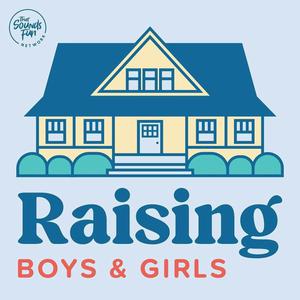 Raising Boys & Girls
Raising Boys & Girls
 Couple Things with Shawn and Andrew
Couple Things with Shawn and Andrew
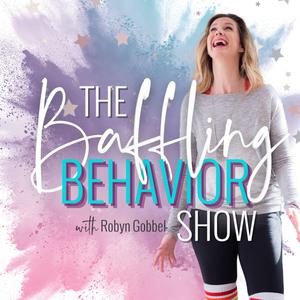 The Baffling Behavior Show {Parenting after Trauma}
The Baffling Behavior Show {Parenting after Trauma}
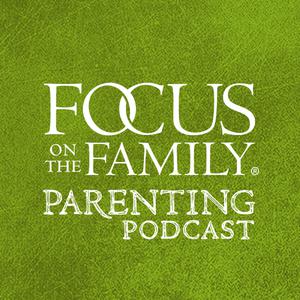 Focus on Parenting Podcast
Focus on Parenting Podcast
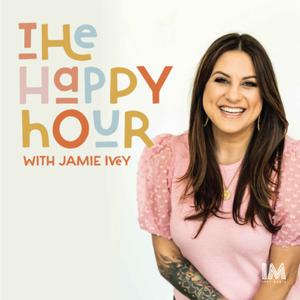 The Happy Hour with Jamie Ivey
The Happy Hour with Jamie Ivey
 That Sounds Fun with Annie F. Downs
That Sounds Fun with Annie F. Downs